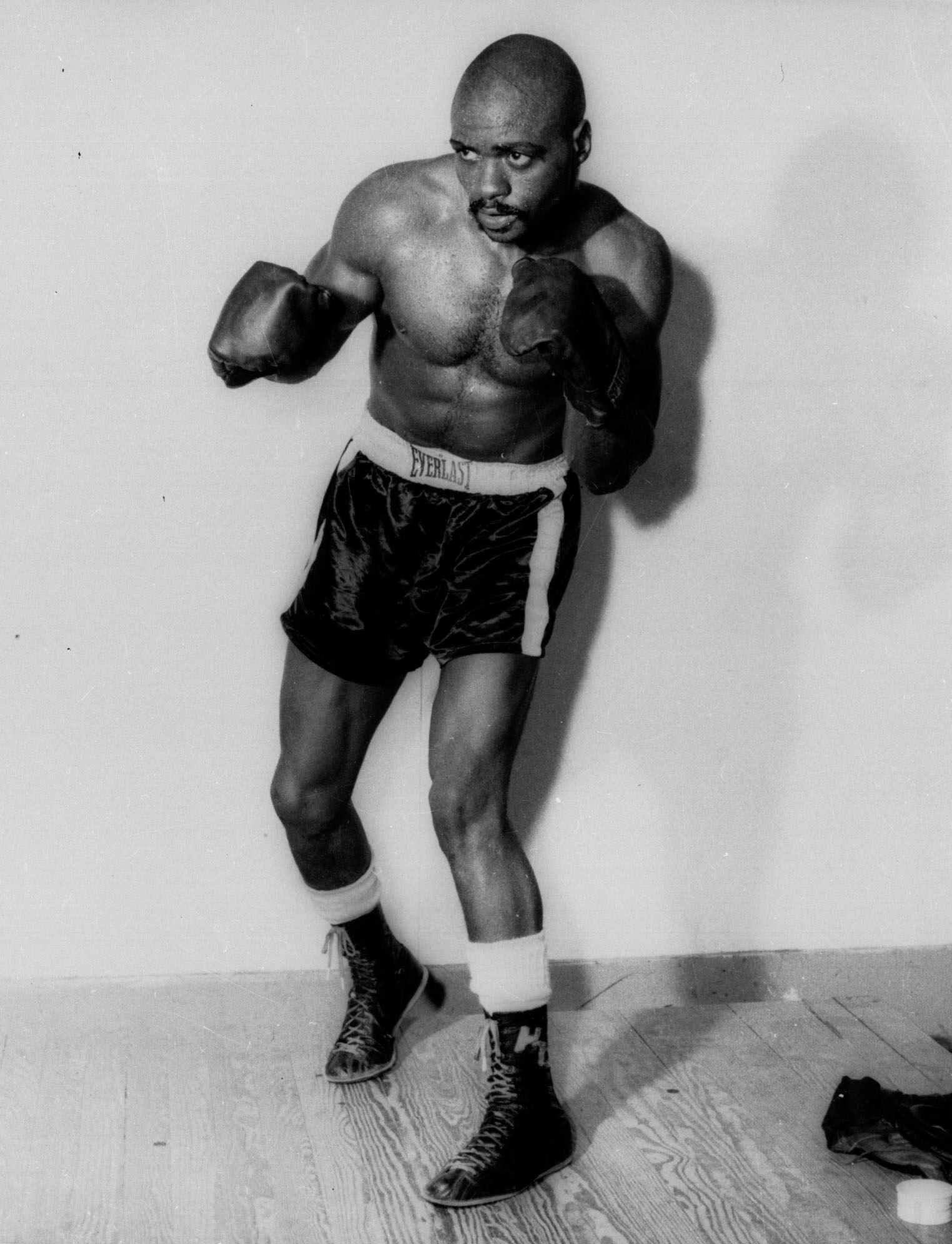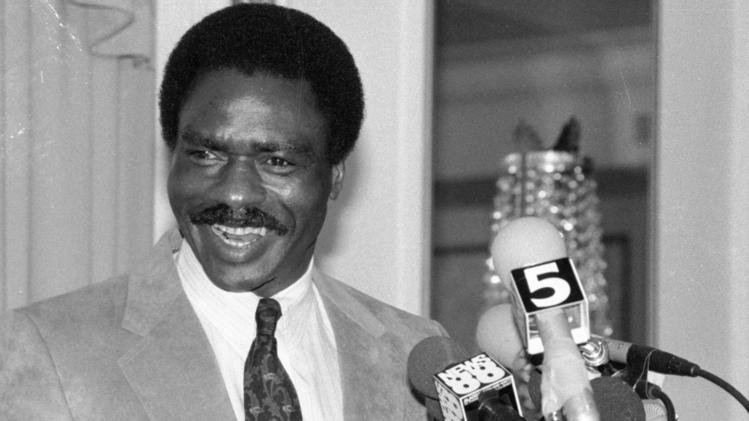World News (AP) – Rubin “Hurricane” Carter never surrendered hope of regaining his freedom, not even after he was convicted of a triple murder, then convicted again and abandoned by many prominent supporters.
For 19 long years, the prizefighter was locked in a prison cell far away from the spotlight and the adulation of the boxing ring. But when he at last won his biggest fight — for exoneration — he betrayed little bitterness. Instead, Carter dedicated much of his remaining life to helping other prisoners and exposing other injustices.
The middleweight title contender, whose murder convictions became an international symbol of racial injustice and inspired a Bob Dylan song and a Hollywood film, died Sunday. He was 76.
The New Jersey native, who had suffered from prostate cancer, died in his sleep at his home in Toronto, said John Artis, his former co-defendant and longtime friend and caregiver.
Carter “didn’t have any bitterness or anger — he kind of got above it all. That was his great strength,” said Thom Kidrin, who became friends with Carter after visiting him several times in prison.
The boxer, a former petty criminal, became an undersized 160-pound contender and earned his nickname largely on his ferocity and punching power.
largely on his ferocity and punching power.
Although never a world champion, Carter went 27-12-1 with 19 knockouts, memorably stopping two-division champ Emile Griffith in the first round in 1963. He also fought for a middleweight title in 1964, losing a unanimous decision to Joey Giardello.
But his boxing career came to an abrupt end when he was imprisoned for three 1966 murders committed at a tavern in Paterson, N.J. He was convicted in 1967 and again in 1976 before being freed in 1985, when his convictions were thrown out after years of appeals. He then became a prominent public advocate for the wrongfully convicted from his new home in Canada.
His ordeal and its racial overtones were publicized in Dylan’s 1975 song “Hurricane,” several books and a 1999 film starring Denzel Washington, who received an Academy Award nomination for his portrayal.
In a statement issued Sunday, Washington praised Carter’s “tireless fight to ensure justice for all.”
Carter and Artis had been driving around Carter’s hometown on the night that three white people were shot by two black men at the Lafayette Bar and Grill. They were convicted by an all-white jury largely on the testimony of two thieves who later recanted their stories.
Carter was granted a new trial and briefly freed in 1976, but he was sent back for nine more years after being convicted in a second trial.
“I wouldn’t give up,” Carter said in an interview in 2011 on PBS. “No matter that they sentenced me to three life terms in prison. I wouldn’t give up. Just because a jury of 12 misinformed people … found me guilty did not make me guilty. And because I was not guilty, I refused to act like a guilty person.”
Dylan, a boxing aficionado, became aware of Carter’s plight after reading the fighter’s autobiography. He met Carter and co-wrote “Hurricane,” which he performed on his Rolling Thunder Revue tour in 1975. The song concludes: “That’s the story of the Hurricane/But it won’t be over till they clear his name/And give him back the time he’s done/Put him in a prison cell but one time he could-a been/The champion of the world.”
Muhammad Ali and Coretta Scott King spoke out on Carter’s behalf. Other celebrities also worked toward his release, joined by a network of friends and volunteers.
Carter eventually won his freedom from U.S. District Judge H. Lee Sarokin, who wrote that the boxer’s prosecution had been “predicated upon an appeal to racism rather than reason, and concealment rather than disclosure.”
Born on May 6, 1937, into a family of seven children, Carter struggled with a hereditary speech impediment and was sent to a juvenile reform center at 12 after an assault. He escaped and joined the Army in 1954 and learned to box while in West Germany.
After returning home, he committed a series of muggings and spent four years in various state prisons. Upon his release, he began his pro boxing career, winning 20 of his first 24 fights mostly by knockout.
At 5-foot-8, Carter was fairly short for a middleweight, but he was aggressive and threw waves of punches. His shaved head and menacing glower gave him an imposing ring presence but also contributed to a forbidding aura outside the ring. He was quoted as joking about killing police officers in a 1964 story in the Saturday Evening Post, which was later cited by Carter as a cause of his troubles with law enforcement.
Carter boxed regularly on television at Madison Square Garden and overseas in London, Paris and Johannesburg. Although his career appeared to be on a downswing before he was implicated in the murders, the 29-year-old fighter was hoping for a second middleweight title shot.
Carter defied his prison guards from the first day of his incarceration and spent time in solitary confinement because of it.
“When I walked into prison, I refused to wear their stripes,” Carter said. “I refused to eat their food. I refused to work their jobs, and I would have refused to breathe the prison’s air if I could have done so.”
Carter eventually wrote and spoke eloquently about his plight, publishing his autobiography, “The Sixteenth Round,” in 1974. Benefit concerts were held for his legal defense featuring Dylan, Joni Mitchell and Roberta Flack.
Although many of his celebrity friends abandoned the cause after his second conviction and an allegation of assault during his brief release, other advocates worked tirelessly on his behalf, culminating in Sarokin’s ruling and two subsequent failed prosecutorial appeals to have the convictions reinstated. Each year on the anniversary Sarokin’s decision, Carter called the judge to thank him.
After his release, Carter moved to Toronto, where he served as the executive director of the Association in Defence of the Wrongly Convicted from 1993 to 2005. He received two honorary doctorates for his work.
Canadian director Norman Jewison made Carter’s story into a biographical film. Washington worked closely with Carter to capture the boxer’s transformation and redemption.
“He’s all love,” Washington said while onstage with Carter at the 2000 ceremony where he won a Golden Globe. “He lost about 7,300 days of his life, and he’s love.”
The makers of “The Hurricane,” however, were widely criticized for factual inaccuracies and glossing over other parts of Carter’s story, including his criminal past and a reputation for a violent temper. Giardello sued the film’s producers for its depiction of a racist fix in his victory over Carter, who had long acknowledged that Giardello deserved the win.
Artis said Carter will be cremated and didn’t want a funeral or any memorial. Artis has been taking care of him since 2011.
“He was a champion of the underdog,” he said. “He was like the David against the Goliath of the justice system.”
Kidrin spoke with Carter on Wednesday.
“He said, ‘You know, look, death’s coming. I’m ready for it. But it’s really going to have to take me because I’m positive to the end.'”
———
AP Sports Writer Rick Freeman and AP Drama Writer Mark Kennedy in New York and Rob Gillies in Toronto contributed to this report.

